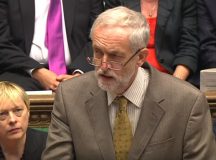Fathom’s contributing editor Dr. Toby Greene sat down with Jonathan Rynhold, professor of Political Science at Bar Ilan University, and discussed the implications of Brexit for Israel’s relations with the UK and the European Union. For further analysis of Brexit, see Azriel Bermant in Fathom.
Toby Greene: Jonathan, let’s focus first on the UK and its foreign policy. Will we see a UK freed from the constraints of a common European foreign policy adopting a different approach to Israel and the Israeli-Palestinian conflict?
Jonathan Rynhold: The first point to make is that the process of the UK separating itself from the EU will be long and complicated. Whilst it is not 100 per cent clear that Brexit will end with the UK fully leaving the EU, it will nonetheless take a long time to work out its consequences for the UK’s foreign policy and its economy. This will reduce the time available for the UK to deal with Israel, the Palestinians and the Middle East.
TG: In time will we see a different UK, perhaps closer to the US, or more independent of EU positions?
JR: I think we need to separate EU policy into three fields: Diplomatic, politico-military, and economic. The one area where the EU has some degree of significance as a body when it comes to the Middle East is in the diplomatic field. There is no doubt that the UK’s position towards votes at the UN has been influenced by an attempt to get an EU-wide consensus on issues such as the Israeli-Palestinian conflict. Although that effort has been relatively successful in terms of a common EU foreign policy – they’ve reached more rhetorical consensus on the Peace Process than on any other issue – the UK and France generally go their separate ways when they choose to. They’re the states with a permanent seat on the UN Security Council (UNSC), not the EU. If the UK leaves the EU that could strengthen the Atlantic-orientation in its foreign policy, due to the desire to maintain the special relationship with the US, which has dominated British foreign policy since 1945. But the balance will shift according to who’s in power. The conservatives tend to be more pro-American, and if Jeremy Corbyn’s Labour were to come into power, they would probably take a more independent line from both the EU and the US with an anti-US and anti-Israel bias, irrespective of other considerations.
TG: No doubt it would also depend on who is in power in the US. If Donald Trump were to become US president, that might also affect the special relationship?
JR: Yes. I do not think we can underestimate the damage Trump would cause to international relations. It’s not for nothing that the Russians and Iranians have their fingers crossed on him becoming the next US president. It’s not so much because of his positions but because of his lack of positions; the fact that he is completely inconsistent, that most Republican foreign policy specialists have said they will not serve under him, and, rightly in my opinion, that they would be very worried about how he would handle a major crisis.
TG: Britain’s Ambassador to Israel, David Quarrey, has (unsurprisingly) tried to talk up the positives of the UK leaving the EU from an Israeli perspective, suggesting the bilateral relationship between Israel and the UK can only become more significant. Is that spin or is there something substantial in his argument?
JR: I think there is something substantial. The UK-Israel relationship is stronger in terms of political, diplomatic and military cooperation than is the multilateral relationship between the EU and Israel. The UK has been less antagonistic (or more sympathetic) to Israel’s security concerns since Tony Blair, and all prime ministers since have taken the same position, viewing Israel and the UK’s security as linked. That’s clear on the bilateral path, but when it goes multilateral, support for Israel becomes something that is negotiated away because there are other immediate priorities. For example, if the prime minister might want his/or her associate to be the EU commissioner and the price for that is agreeing to something else on Israel, Israel is not the UK’s priority. So that factor will be removed.
A second point is that the UK will become incentivised to look for economic partners outside of the EU. And while there is a political problem for Israel with the public, associated with the civil society Boycott, Divestment and Sanctions (BDS) movement, in economic terms there is not a problem. The economic relationship with Israel has increased over the last decade. There’s more scientific cooperation, more trade, and the UK may be required to look to Israel for greater cooperation, particularly with the uncertain economic situation surrounding Brexit. So both politically and economically it is likely that the relationship will improve a bit, but it’s not as if the EU is the major factor.
TG: So, if the EU was not a massive drag on the British-Israeli relationship in the first place, removing the EU from the picture is not going to make a transformative difference – maybe just remove one possible constraint on the relationship?
JR: The negative side to Brexit is that Britain will not be promoting a position that is more sensitive to Israeli security concerns and positions at the negotiating table in the EU. Former Prime Minister David Cameron’s speech in the Knesset during the 2014 John Kerry negotiations was one of the first times that a British prime minister had spoken in detail of Israel’s security requirements. Normally what happens is that the EU details what the Palestinians needs are, i.e. 1967 borders, East Jerusalem as its capital, a solution to the refugee problem. It adds that of course Israel should have security, but rarely offers any detail. David Cameron, however, detailed the Jordan Valley, mentioned demilitarised zones, and mentioned recognition of a Jewish state. That voice will no longer be in the EU – that is a net loss for Israel. However, the UK still has a seat at the UNSC and will be freer to act, so it’s a mixed picture.
The key is to realise that UK-Israel relations and UK policy towards Israel are not driven by the membership or non-membership of the EU. What drives it are a number of things: economics, which we have spoken about; but also the strategic question of ‘What is the source of instability in the Middle East?’ There are certain people in the UK who argue that if you resolve the Arab-Israeli conflict, then the Middle East would cease to be unstable, anti-western – sometimes known as the ‘linkage view’. There are also those who argue the other side: that of course it would be help tensions in the Middle East if we could resolve the Israeli-Arab conflict, but larger problems such as youth unemployment, lack of education, political extremism, poverty, and sectarianism are intrinsic to the Middle East. The people who subscribe to the second view tend to be more pro-Israel, whilst the people who take the first view tend to be more anti-Israel. What we have seen over the last five to six years in the Middle East has strengthened the second view, as it became more difficult to advance the argument that Israel has anything to do with the problems in Libya, Iraq, Iran, Saudi Arabia and Syria.
TG: You mention the very powerful speech that David Cameron gave, in which he portrayed Britain and Israel as like-minded, liberal democratic states facing shared challenges of radical Islam. Now they will be two states on the periphery of the EU with close relations though without membership of it. Is there any sense in which Israel, itself with particularly close relations with the EU in many areas, could be a model for the UK?
JR: It is interesting that according to the EU ambassador to Israel, no non-EU member has more agreements with the European Union than Israel, so it’s ironic that Israelis have such a negative view of the EU (with some justification in the diplomatic sphere) when on all practical issues Israel has a wonderful relationship with the EU.
Israel is interesting in being one of the few states to have free trade agreements with both the US and EU. Could the Israeli model be a model for the UK? Free trade without freedom of movement is probably what most people in Britain would like but Israel’s agreements do not include what would be most important economic issue to the UK, which is the financial sector. This is not central to Israel’s economy, which relies more on the production of unique technologies. Also, the UK is the second largest economy in Europe, which should give it more leverage in negotiations than countries like Israel (or Norway) – but it could also cause more friction between negotiators. So I’m not entirely convinced the Israeli model could be replicated for the UK model.
TG: Israelis feel the EU is biased towards the Arab cause and doesn’t fully understand Israel’s concerns and interests. Thinking about an EU without the UK, do you expect the EU to have a markedly different position when it comes to the Peace Process?
JR: When we talk about decision-making in the EU, we need to distinguish between its member-states and the European Commission in Brussels. The Commission has an interest in moving beyond the nation state, trying to increase the power of the EU at the expense of the member states. It tends to be anti-Israel, partly because (symbolically) they do not like the idea of the nation state and Israel likes to emphasis itself as a nation state, and partly because it aims to distinguish itself from the US. Member states, however, remain the main actors in EU foreign policy making and tend to be more sympathetic to Israel than the EU’s collective bodies.
Also, because of the economic and migrant crisis in Europe, what is driving EU foreign policy towards Israel is not ideology, but political and economic pragmatism. You can see this in a microcosm in Greece’s relations with Israel. Greece has a far-left government, led by Syriza, which had supported the BDS when out of power. But Greece is in a terribly difficult economic situation, and because many Israelis are now going on their holidays to Greece, the government has come out very strongly against BDS and now has very close relations with Israel.
TG: I think you do see on the Israeli right a certain degree of schadenfreude when it comes to the weakening of the EU. But if we think about both economic relations and geopolitics, is the weakening of a major Western liberal democratic bloc really in Israel’s diplomatic interests?
JR: It depends what you mean about the weakening of the EU. The weakening of the EU Commission’s federalist view of the EU is not a bad thing for Israel. It shows that Israel is not the only country that wants to be a nation state, and that other democracies and other people, who are welcoming of different cultures and in favour of diversity, can also want to be a nation state. However, in the broader geopolitical strategic picture, if the West, the EU, NATO, the US are weakened, that is terrible for Israel, because into that vacuum come Russia, Iran, China, and groups such as ISIS. They are worse for Israel, worse for Britain and worse for the US. A Trump presidency that did not care about a weakening NATO; an EU that breaks up into its component parts making it easier for Russia to dominate – this would be terrible news for Israel. Thus, if the EU becomes less federalist, that doesn’t matter. But if the EU collapses and NATO weakens, that matters a lot. If there are two pillars: the coherence of Europe in the security sphere, and the willingness of the US to lead, then a Trump presidency puts a question mark over one, and the migrant crisis in Europe puts a question mark over the other.
TG: Part of the politics of the Brexit referendum related to rising national and xenophobia, which we see also in other European societies, whilst we also see the rise of a populist, xenophobic presidential candidate with Trump in the US. That kind of political and social environment has not traditionally been ‘good for the Jews’. Is that something Israel should be concerned about?
JR: We need to look at two things. Xenophobia doesn’t affect Israel directly. If anything it means that the narrative sometimes seen in the media – in which any racist act by any individual Israeli is used as a basis to say that the State of Israel is racist – is undercut because it turns out Marine le Pen is doing well in France, Trump has 40 per cent support in the US, and UKIP is doing pretty well. And none of those countries that are experiencing a rise in these trends face the intensity of security threats from radical Islam that Israel does. None of those countries are next door to where half a million people have been killed. Nobody else has been threatened with destruction by another state. So Israeli democracy is more resilient by any realistic comparative measure. On the other hand, it does matter because Israel cares about Jewish people throughout the world, and Israel, in cooperation with many countries, will help ensure the protection and security of Jewish communities.
The other thing of concern here is that really what has driven British-Israeli cooperation, and EU-Israeli cooperation, is security about the Islamist threat. The UK faces the threat of terrorist attacks by returning foreign fighters. Israel is a free democratic society that has learnt to cope with the threat of home-grown terrorism on a regular basis – this explains the degree of security cooperation. The Europeans understand increasingly that whilst they do not suffer from the same intensity of the threat facing Israelis, they do face a similar threat and they have a lot to learn from Israel.
It was very telling on Newsnight after the 2015 Paris attacks that French people on the streets were saying, ‘We’re going to have to be more like the Israelis and accept a higher degree of security in our daily lives.’ Israel was the example because it’s a democracy that always tries to balance security and liberty. It involves lawyers and professors of ethics in the development of its military doctrine. It’s always a very delicate balancing act, there’s an open debate, it’s controversial, not everyone agrees, but it does deal with it in this way and that is the big story on the horizon.
TG: Many European capitals are fed up with Israel and in what they perceive as the Israeli leadership’s unhelpful position regarding the Palestinians and settlement building. Is the Palestinian issue going to continue to be a break on Israel’s relations with the EU and with individual EU states?
JR: It will continue to be a factor, but you have to look at where the EU is compared to where Saudi Arabia and Egypt are. The Arab League says that both Hezbollah’s political and military wings are terrorist organisations, whereas the EU makes a distinction between its political and legal wing, and its non-legal military wing. The EU is increasingly out of touch with the region on these issues. It’s not because Egypt and the Saudis don’t want Israel to resolve the conflict with the Palestinians – they do – and it’s not because they’re in favour of settlements – of course they’re not – they just recognise there is something more dangerous happening and it requires cooperation with the Israelis.
Israel needs to do its bit to help facilitate that. But it cannot be a one-way street. If the EU doesn’t take into account Israel’s security situation with Hezbollah, which has 100,000 rockets that can destroy Israel’s vital infrastructure and lead to a war with huge civilian casualties on both sides of the Lebanese border, then it shouldn’t be expected to be listened to by the Israelis when it talks about the Palestinians. Thus, If Europe wants Israel to listen to them in the Palestinian sphere, then they have to listen more to Israel in the security sphere.
TG: There is an enormous chasm right now between the British government and the opposition in terms of Israel. We could potentially be looking at a very different picture in the unlikely scenario that the Labour Party comes to power.
JR: What’s going on in Labour is very significant. There are two sides to Labour on Israel: one side that generally supports a two-state solution and a peace process and believes that both sides have to do certain things in order for that to happen; and there is what your colleague Professor Alan Johnson has termed ‘anti-Semitic anti-Zionism’, which applies different standards and norms to the State of Israel and to the Jewish right to self-determination, and which employs, often unconsciously, typically classical anti-Semitic tropes, not with regard to individuals but to Jews collectively and to the State of Israel. Some Labourites believe this is a poison infecting large parts of the party, particularly those people who have been brought in by Jeremy Corbin from the radical left. This is a real issue that poisons British democracy, tolerance, and liberal values and paradoxically what I find particularly interesting about it is the strength of reaction in Labour against this. The fact that anti-Semitism was the number one issue on the political agenda in Britain for a whole week in May was unprecedented. Antisemitism in Labour was really being viewed as a ‘canary in the coal mine’. Traditional Labourites, not from the radical anti-Zionist left, saw this as a precedent that if you treat Jews and the Jewish people with prejudice, that opens the door to a more general prejudice – ‘It will start with the Jews, but it will not end with the Jews.’ So whilst I am very concerned about what is going on in Labour, I’m also encouraged by the brave, strong people in Labour who have come out and called ‘anti-Semitism’ anti-Semitism.






































If the UK leaves the EU it will make no difference to the political relationship with Israel.
But it would be very adverse for the UK’s economy and security.